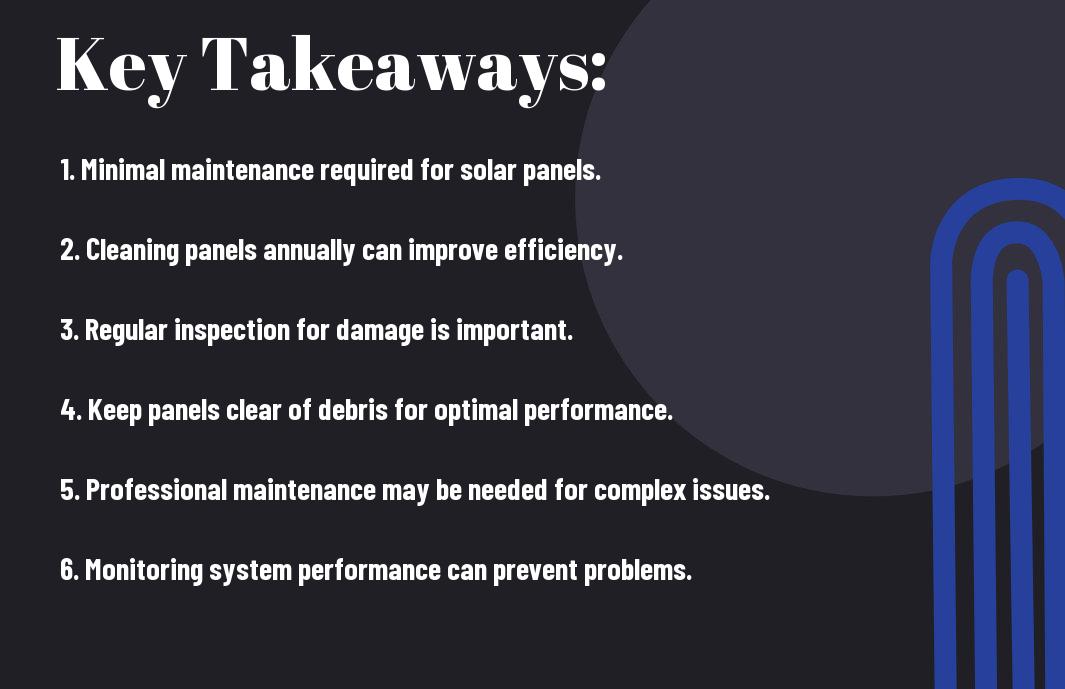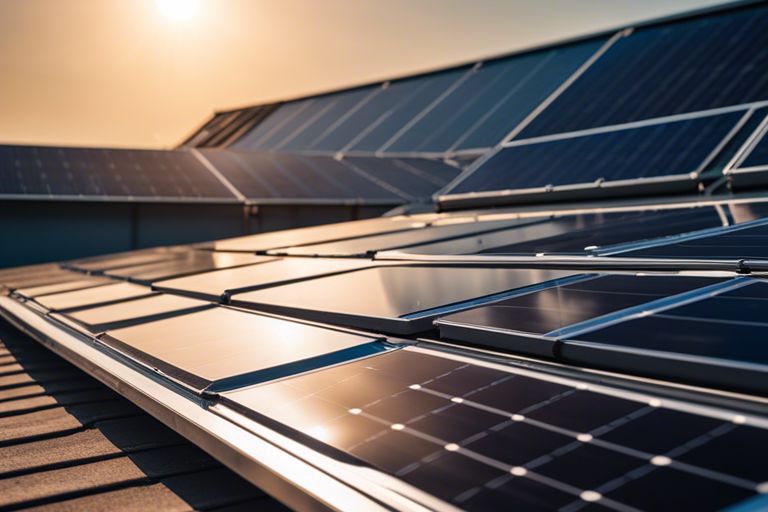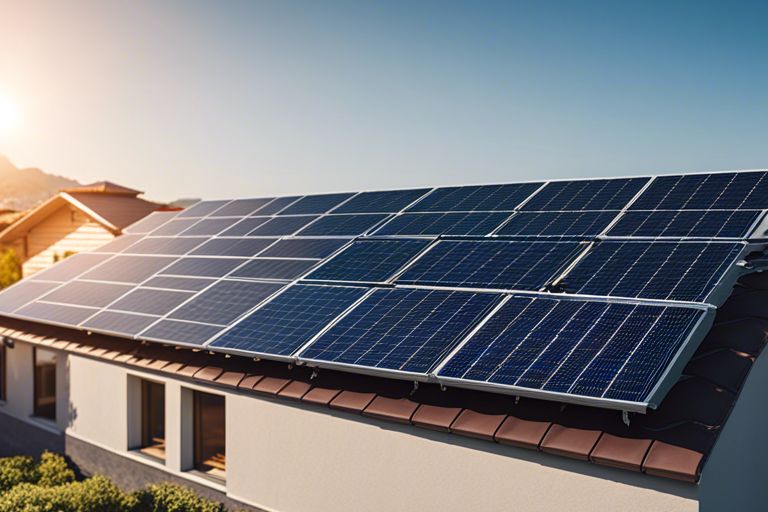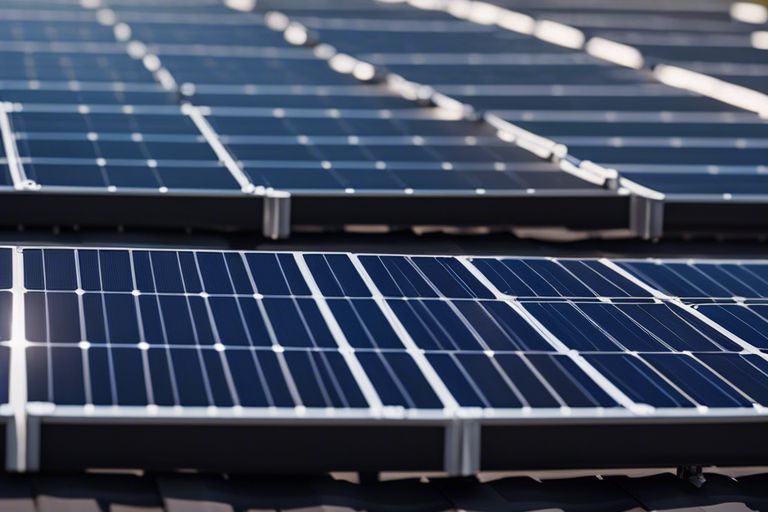As far as the upkeep of your solar panels, you might be wondering if they require a substantial amount of maintenance. Let’s examine into the world of solar energy and uncover just how much attention your solar panels will need to keep them shining bright like the sun.
Key Takeaways:
- Solar panels require minimal maintenance, making them a low-maintenance energy solution.
- Regular cleaning of solar panels is recommended to ensure optimal performance.
- Professional inspection of solar panels can identify issues early and prevent potential problems.
- Monitoring the energy production of solar panels can help detect any drop in efficiency.
- Regularly trimming trees near the solar panels can prevent shading and maximize sunlight exposure.


The Basics of Solar Panel Maintenance
A crucial aspect of owning a solar panel system is the maintenance it requires to ensure optimal performance and longevity. You might be wondering about the Realistic maintenance costs for solar? Let’s investigate the basics of solar panel maintenance to help you understand how to take care of your solar investment.
What affects solar panel performance
Panel orientation, shading, dirt, dust, and debris accumulation are factors that can affect solar panel performance. Panels should ideally face south in the northern hemisphere and north in the southern hemisphere for maximum sunlight exposure. Shading from trees, buildings, or even bird droppings can decrease the efficiency of your solar panels. Regular cleaning and trimming of surrounding vegetation can help maintain optimal performance.
Common misconceptions about maintenance
What you might not realize is that solar panels are generally low maintenance, contrary to common misconceptions. The panels themselves are solid-state technology with no moving parts, which means they require minimal upkeep. Some people believe that solar panels need frequent cleaning, but in reality, most panels are self-cleaning to a certain extent, especially during rainfall. Unless you live in an area with heavy pollution or dust, occasional cleaning with a gentle detergent and water is usually sufficient.
Another misconception is that snow completely blocks solar panels in winter. While snow can temporarily reduce energy production, solar panels are designed to be mostly self-clearing. As the panels heat up in sunlight, they often melt snow relatively quickly. In extreme cases, gently removing snow with a soft brush can help expedite the process.
Cleaning Solar Panels
Why cleaning is necessary
Any accumulation of dirt, dust, bird droppings, or other debris on your solar panels can significantly reduce their efficiency. This build-up creates a barrier between the sunlight and the photovoltaic cells, hindering the panels’ ability to convert sunlight into electricity effectively. Regular cleaning is crucial to ensure that your solar panels operate at their maximum potential and continue to generate optimal energy output.
How often to clean solar panels
Any the frequency of cleaning your solar panels depends on your location and the environmental conditions you experience. In general, it is recommended to inspect your panels for dirt and debris every few months and clean them as needed. Areas with heavy pollution, dust, or bird activity may require more frequent cleaning to maintain peak performance.
This regular maintenance not only ensures that your solar panels are operating efficiently but also prolongs their lifespan, saving you money in the long run.
Methods for cleaning solar panels
Cleaning your solar panels can be a straightforward task. You can use a garden hose to rinse off dust and dirt or a soft brush with soapy water for more stubborn grime. Always remember to avoid using abrasive materials or harsh chemicals that could damage the panels’ surface. Additionally, consider cleaning the panels early in the morning or late in the evening when the temperatures are cooler to prevent thermal shock from sudden temperature changes.
Regularly cleaning your solar panels not only ensures optimal energy production but also allows you to monitor the overall condition of your system. By incorporating this simple maintenance task into your routine, you can maximize the benefits of your solar investment for years to come.
Inspecting Solar Panels
Once again, regular inspections of your solar panels are crucial to ensure they are functioning efficiently and safely. By visually inspecting your solar panels, you can catch any issues early on and prevent them from escalating into bigger problems.
Visual inspections
The first step in inspecting your solar panels is to visually scan them for any signs of damage or debris. Look for any cracks, chips, or discoloration on the panels that could indicate a problem. Additionally, make sure there is no shading from nearby trees or structures that could be affecting the panels’ performance.
Checking for damaged or loose connections
One common issue to watch out for during your inspection is damaged or loose connections in your solar panel system. These connections are crucial for the proper functioning of your panels, so it’s important to check them regularly for any signs of wear or damage.
Connections can become loose over time due to vibrations or extreme weather conditions, which can lead to a decrease in energy production. It’s important to tighten any loose connections and replace any damaged components to ensure your system continues to operate efficiently.
Identifying signs of wear and tear
To prevent any potential issues with your solar panels, it’s important to identify signs of wear and tear during your inspections. Loose mounting hardware, cracked glass, or corroded frames are all indicators that your panels may need maintenance.
By addressing these issues promptly, you can extend the lifespan of your solar panels and maximize their energy production. Regular inspections and maintenance are key to keeping your solar panel system running smoothly for years to come.

Troubleshooting Common Issues
After reading the Guide to Solar Panel Maintenance (2024), you may encounter some common issues with your solar panels. Here are some troubleshooting tips to help you address these problems:
Dealing with faulty inverters
Inverters are crucial components of your solar panel system, as they convert direct current (DC) generated by the panels into alternating current (AC) for use in your home. If you notice that your system is not producing as much electricity as usual, a faulty inverter could be the culprit. In this case, you should check the inverter display for error codes or warnings. If you cannot resolve the issue on your own, it’s best to contact a professional solar panel technician for assistance.
Addressing issues with panel temperature
Panel Temperature Troubleshooting
| Issue | Solution |
|————————|———————————————–|
| Overheating | Check for shading or ventilation issues |
| Underperforming in cold| Ensure panels are clear of snow and debris |
After consulting the maintenance guide, you may find that high panel temperatures are affecting your system’s efficiency. It’s crucial to address this issue promptly, as overheating can lead to decreased energy production. Check for shading on your panels or ensure proper ventilation around them. In colder climates, make sure to clear snow and debris from the panels to prevent underperformance during chilly weather.
Resolving connectivity problems
To address connectivity issues with your solar panels, start by inspecting the wiring and connections between the panels, inverters, and your electrical system. Ensure that all cables are securely connected and free of damage. If you suspect a connectivity issue but are unsure how to proceed, reaching out to a professional for assistance is recommended.
This guide aims to provide you with the necessary information to troubleshoot common issues that may arise with your solar panel system. By following these tips and being proactive in your maintenance efforts, you can ensure that your solar panels continue to operate efficiently for years to come.
Preventative Maintenance
Scheduling regular checks
To ensure the optimal performance of your solar panels, it is important to schedule regular checks. You should inspect the panels for any dirt, debris, or shading that may be affecting their efficiency. By keeping a consistent schedule, you can catch any issues early on and address them before they escalate.
Keeping the surrounding area clear
To maintain your solar panels effectively, it is imperative to keep the surrounding area clear. An unobstructed environment ensures that sunlight can reach the panels without any interference, maximizing their energy production. Trim any overhanging branches or foliage that may cast shadows on the panels, and remove any debris that could accumulate and block sunlight.
An additional way to keep the surrounding area clear is by ensuring there are no nearby structures or objects that could potentially damage the panels during extreme weather events. Regularly check for any signs of wear and tear on nearby trees or buildings that could pose a threat to your solar panel system.
Monitoring performance data
Scheduling regular monitoring of your solar panel system’s performance data is crucial for maintaining its efficiency. By tracking the data, you can identify any fluctuations or anomalies in energy production, which may indicate underlying issues that need to be addressed. This proactive approach allows you to take necessary actions promptly and keep your system running smoothly.
In addition to monitoring performance data, pay close attention to any changes in the surrounding area that could impact your solar panels’ efficiency. Factors such as new construction, changes in landscaping, or nearby obstructions can all affect how much sunlight reaches your panels and may require adjustments to maximize energy production.
Professional Maintenance Options
Keep your solar panels operating at peak efficiency by considering professional maintenance options. While you can perform basic maintenance tasks yourself, there are instances where hiring a professional may be beneficial.
When to hire a professional
Options
When you notice a significant drop in your solar panel’s performance, such as a decrease in energy production or visible damage to the panels, it may be time to seek professional assistance. Additionally, if you are not comfortable working at heights or dealing with electrical components, hiring a professional can ensure that the maintenance is done safely and effectively.
What to expect from a professional maintenance service
Any
When you enlist the help of a professional maintenance service for your solar panels, you can expect a thorough inspection of the system, including checking for any issues with the panels, connections, or mounting hardware. The service provider will also clean the panels to remove any dirt or debris that could be affecting their efficiency.
Expect the professionals to also conduct performance tests to ensure that your solar panels are operating as they should be. Additionally, they may provide you with recommendations for any necessary repairs or upgrades to optimize the system’s performance.
Costs associated with professional maintenance
maintenance
A professional maintenance service for your solar panels can range in cost depending on the size of your system and the extent of the services provided. Typically, you can expect to pay a flat fee for a one-time maintenance visit or opt for a maintenance plan that includes regular inspections and cleanings throughout the year.
As with any service, it’s important to compare quotes from different providers to ensure you are getting a fair price for the level of maintenance being offered. Investing in professional maintenance can help prolong the life of your solar panels and maximize their energy production, making it a worthwhile expense in the long run.
Summing up
Following this exploration of whether solar panels require a significant amount of maintenance, it is clear that they are relatively low-maintenance devices. By following some simple maintenance tips, such as occasional cleaning and monitoring for any issues, you can ensure that your solar panels remain efficient and productive for many years to come. Do not forget, regular maintenance not only prolongs the lifespan of your solar panel system but also maximizes its energy production, saving you money in the long run.
FAQ
Q: Do solar panels need a lot of maintenance?
A: Solar panels require minimal maintenance. Regular inspections to check for dirt, debris or shading that may affect their performance are recommended. Cleaning panels a few times a year can also help maximize their efficiency.
Q: How often should I clean my solar panels?
A: The frequency of cleaning solar panels depends on factors such as your location, weather conditions, and the presence of dust or dirt. In general, it is recommended to clean them a few times a year, especially if you notice a decrease in energy production.
Q: What are some common maintenance tasks for solar panels?
A: Aside from cleaning, other maintenance tasks for solar panels include checking for any shading from nearby trees or structures, inspecting for damage or wear, monitoring the inverter for any issues, and ensuring that the wiring and connections are secure.
